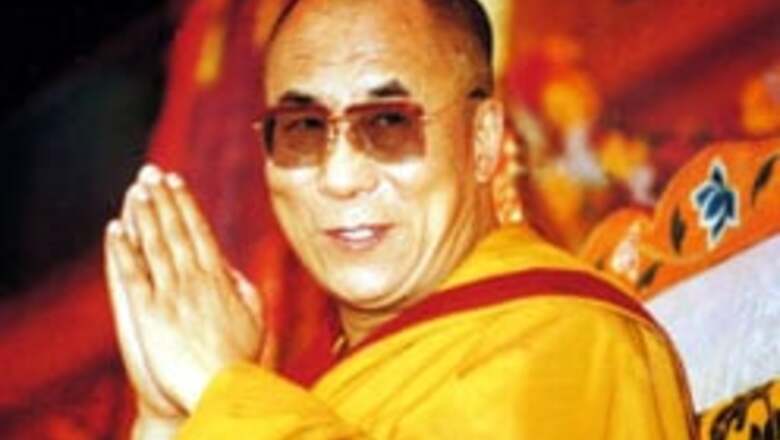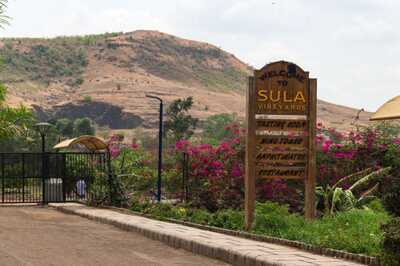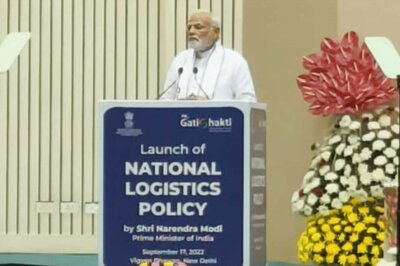
views
Beijing: Envoys of the Dalai Lama have raised demands on Tibetan autonomy and on the region's borders which China cannot accept, a Chinese government official said on Friday in comments that shed light on secretive talks.
"During the process of making contacts, the Dalai Lama raised two big questions. One is Greater Tibet. One is high-level or real autonomy," secretary-general of the China Tibetology Research Centre, Laba Pingcuo said.
"The two demands he raised don't match the history of Tibet," he said of the Tibetan spiritual leader who lives in exile in India.
"The Dalai Lama's demands have set up great obstacles," he added after the fifth rounds of talks since 2002 that have produced no concrete results.
The Dalai Lama fled Lhasa in 1959 after a failed uprising against Chinese rule, nine years after Communist troops invaded the remote, mountainous area now known as the Tibetan Autonomous Region.
However, parts of the western Chinese provinces of Gansu, Qinghai, Sichuan and Yunnan are also home to large ethnic Tibetan populations and are considered part of a historic, or cultural, Tibet whose future Laba Pingcuo indicated the Dalai Lama wanted to open for consideration.
The Dalai Lama has also long advocated a 'Middle Way' that seeks greater autonomy for Tibet, rather than independence, but Laba Pingcuo said granting more self-rule would be difficult.
"To change the status quo would not be in accordance with the constitution of People's Republic of China and it would not be in accordance with the laws on autonomy for minority peoples," former vice-chairman of the Tibetan Autonomous Region, Laba Pingcuo said
Beijing considers the Dalai Lama a traitor, but analysts say it has been committed to the dialogue in part because of fears that if the 70-year-old dies in exile, he could spark unrest among Tibetans in China, many of who regard him as a god-king.
Despite his indications that the gulf between the two sides remained great, Laba Pingcuo said talks were still beneficial.
"Such kind of contact helps relations between the Dalai Lama and government and helps people in the Dalai Lama group know the reality of China and Tibet," he said.
China's top religious official was quoted in April as saying Beijing might approve a visit by the Dalai Lama, and he himself has said he would like to go, but Laba Pingcuo said he had no information on whether or when such a trip might happen.




















Comments
0 comment